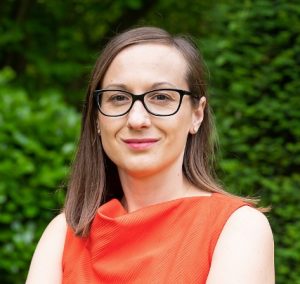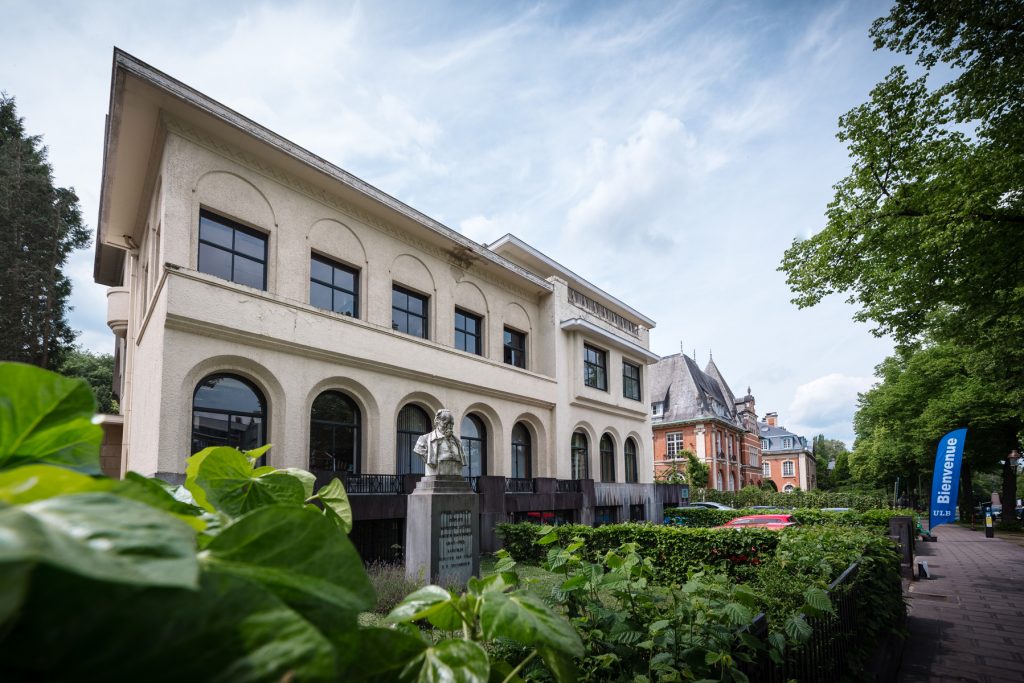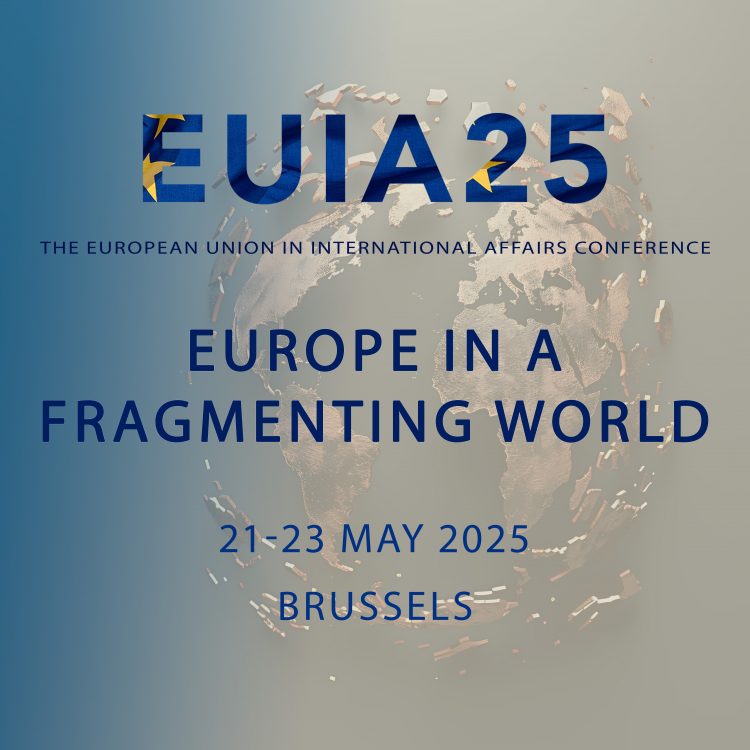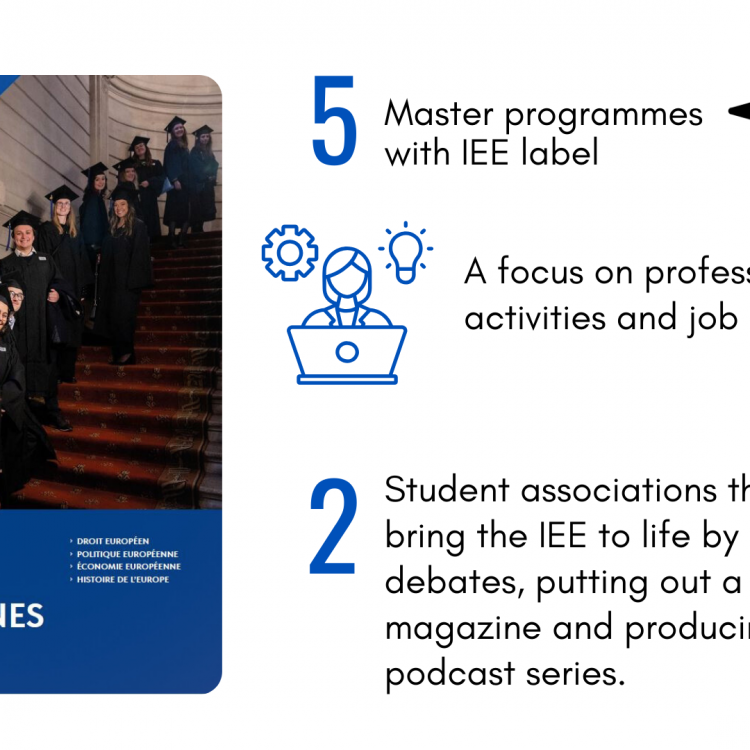On October the 19th and 20th the GEM-DIAMOND project – a multiannual international research effort on Globalisation, Europe and Multilateralism (GEM) set to assess the EU’s capacity to act given the challenges facing Democratic Institutions, the rise of Alternative MOdels and mounting Normative Dissensus (DIAMOND) – was officially launched.
 The 3 993 645.59 EUR programme will be coordinated by Professor Ramona Coman, political scientist, and President of the Institut d’études européennes, for a duration of 48 months.
The 3 993 645.59 EUR programme will be coordinated by Professor Ramona Coman, political scientist, and President of the Institut d’études européennes, for a duration of 48 months.
Professor Coman welcomed the consortium members and the PhD fellows during a two-day event hosted in Brussels, at the Institut d’études européennes (IEE) of the Université libre de Bruxelles (ULB) for a two-day kick-off conference which will include managerial, networking, scientific and orientation sessions involving all the different components of the community.
A Shared Agenda
The Kick-off conference offered an opportunity to reassert the consortium’s shared agenda for the coming four years. Indeed, despite a global pandemic, colleagues from 10 prestigious universities (UvA, LUISS, UCPH, UBB, Paris1, UoW, UNIGE, UL, WUT, FGV) and 6 leading non-academic institutions (CEPS, IAI, GMF, PATRIR, FIDH) have over the past two-years coalesced around a joint effort to put together an interdisciplinary research agenda seeking to shed light on the growing dissensus surrounding liberal democracy and the rule of law within and beyond Europe. The project’s topic is not only timely, but also intellectually challenging for scholars from across the social sciences, including political scientists, legal scholars, sociologists as well as political theorists. If dissensus surrounding liberal democracy has been studied, its implications for the European Union in its internal and external action have remained largely unexplored, both theoretically and empirically.
After several rounds of enriching discussionss, the partners have set for themselves an ambitious research agenda seeking to:
- Conceptualise the seemingly mounting dissensus surrounding liberal democracy.
- Unpack the ambiguous role different actors can play as both champions and challengers of liberal democratic norms, values and practices.
- Assess the impact of increased dissensus regarding liberal democracy on the policy instruments of the EU and its capacity to act in its internal and external policies
The fellows
The GEM-DIAMOND kick-off conference marked the starts of a four-year intellectual journey bringing together not only a diverse community of dedicated academics and experts with different disciplinary backgrounds, but also 16 very promising early-stage researchers.
These 16 doctoral fellows each emerged from a very competitive selection process organised over the summer. They are the lifeblood of our joint effort. “Throughout the selection process they have convinced us that they are intellectually motivated and well equipped to produce cutting-edge research on the state of liberal democracy and the rule of law in the face of mounting dissensus. We look forward to collaborating over the coming years”, said Professor Coman.
A Shared GEM Heritage
The 11 partner universities and 6 non-academic partners associated in GEM-DIAMOND will call on the experience built-up over previous iterations of the GEM Ph.D. School which so far has successfully seen over 50 Double Doctoral Degrees to completion.
GEM-DIAMOND and its kick-off conference can also clearly rely on the GEM Alumni. As such, the kick-off was an opportunity to bring together several members of the Alumni community. This will provided both the project and its 16 GEM-DIAMOND fellows with unique intergenerational networking opportunities. These contacts will feed the research, improve the training and foster future projects. It is also to form the start of a renewed effort to shine the spotlight on the impressive achievements of the GEM Alumni community which already includes researchers and academics across 4 continents.
The work GEM-DIAMOND has set out for itself in terms of training and research will necessarily build on the achievements, findings and insights of previous endeavours undertaken as part of the transnational GEM PhD School which professor Mario Telò launch at the start of the 2000s as a series of so-called GARNET Ph.D. summer schools. From 2010 onwards, these summer schools evolved into the international GEM Ph.D. School with a first set of four generations of Erasmus Mundus funded fellows. Subsequently, under thee stewardship of professor Anne Weyembergh, the MSCA-EJD project called GEM-STONES added a further 14 Double Doctoral Graduates to the GEM Alumni community. Throughout, the IEE as central coordinator has built up a well-versed team dedicated to developing multiple degree programs at the European and global levels.
A Shared Kick-Off Conference
This inaugural GEM-DIAMOND meeting welcomed the new GEM-DIAMOND Ph.D. fellows and the members of our International Advisory Board. Gathering in-person will strengthen the bonds between the members of the consortium thus providing the necessary framework to underpin the scheduled joint PhDs.
Moreover, this inaugural meeting also aimed to collectively tackle the key concept at the core of our project: dissensus. To this end, the conference hosted a keynote by professor Michael Zürn on his recent work conceptualising contestation in global governance. Subsequently, dissensus was discussed across different formats, all of which were designed to further both interdisciplinary and intergenerational dialogue.
“A shared working understanding of dissensus is to be the conceptual north star for our 16 fellows as they seek to unpack the mounting critique of liberal democracy and the rule of law as well as its implications for the EU”, said the project’s principal investigator, professor Coman. “Dissensus can be understood in different ways, yet it is this multifaceted concept that will tie together GEM-DIAMOND’s 16 PhD doctoral dissertations. It is therefore necessary to start our research journey by elucidating this concept considering contrasting theoretical reflections”, she added.




